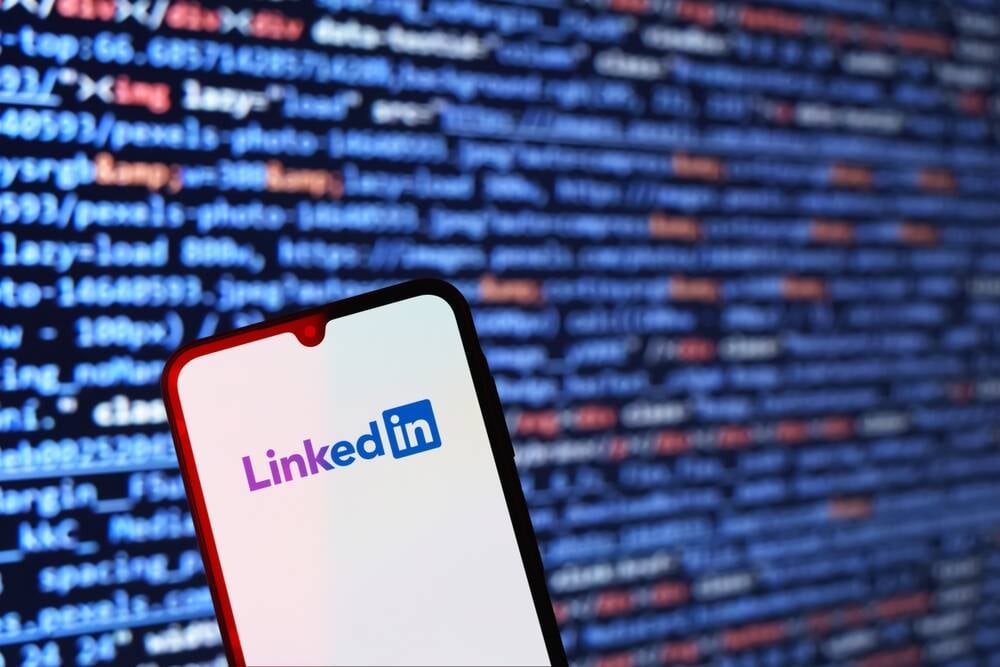
WWW.THEREGISTER.COM
Yup, half of that thought-leader crap on LinkedIn is indeed AI scribbled
If you've spent much time on LinkedIn, you've probably run into self-congratulatory posts, tips on how to maximize your "grindset," and other business lessons from alleged thought leaders. It's tiring, but a study of such posts has pulled the curtain off the wizard: More than half of such posts are written by AI.You know the type: "Humble" folks who make sure a camera is always rolling to capture their charitable acts, people writing more than necessary about how their personal success translates into general rules for life, recruiters hating on job seekers, job seekers telling recruiters how to improve their hiring practices and the occasional tech journalist asking PR people to stop sending them offers for unwanted MBA programs or pitches that have nothing to do with technology. Ahem.Originality.AI, an online AI detection platform, examined 8,795 long-form LinkedIn posts - defined by the site as 100 words or longer - and found that, based on its own assessment tools, 54 percent of such posts "are estimated to be AI-generated."This trend suggests that many self-proclaimed thought leaders on LinkedIn may be presenting AI-generated content as their own profound insights. Sure, it's what many LinkedIn users may have suspected, but it's still potentially damaging for Microsoft's flavor of business-first social networking.Working as intended?It's not like this is surprising - LinkedIn premium subscribers (like this vulture, who has access to LinkedIn premium as a member of the LinkedIn for Journalists program) have access to several AI-powered features they can use to write posts, beef up their profile with recruiter-approved AI-generated language, while users and recruiters alike are encouraged to use AI to generate direct messages to hiring managers and candidates.Those tools have been rolling out on LinkedIn for the past year, the platform told us, but the use of AI to write thought-provoking posts on the professional social network appears to have preceded their inclusion.Originality's sample of nearly 9000 posts spanned a period between January 2018 and October 2024, and it found an interesting three-way correlation between LinkedIn posts and the release of Microsoft-backed OpenAI's Chat-GPT in late 2022: When ChatGPT went public, AI-generated posts and the average long-form post length skyrocketed.According to the report, there's been a 189 percent increase in suspected use of AI from January to February 2023, and a 107 percent jump in the average word count of long-form posts since ChatGPT launched. In other words, it's pretty clear what's been happening to so-called thought leaders on LinkedIn: Many of them have turned to AI for content creation.When asked how it's responding to the glut of AI content on LinkedIn, we were told first and foremost by the platform that it wanted to be clear the AI content identified in the Originality study was "AI-assisted," and not necessarily entirely generated by AI. In other words, post "authors" still provided a prompt, at the minimum, to create their AI-powered content.Aside from that, said LinkedIn's head of feed relevance Adam Walkiewicz, the site encourages good use of AI to "help with review of a draft or to beat the blank page problem [i.e., writer's block]," but Walkiewicz stressed LinkedIn users' original ideas are what really fuels the site."We don't currently track how often [or] whether generative AI was used in the creation or editing of all posts on LinkedIn, but we do have robust defenses in place to proactively identify low-quality, and exact or near-exact duplicate content," Walkiewicz said in an emailed statement. "When we detect such content, we take action to ensure it is not broadly promoted."LinkedIn AI no risk to childrenThere's always the concern that AI-generated content could harm the impressionable and young, but we don't have to worry about kids being exposed to this type of AI garbage on Linkedin: In the platform's own words, it's too dull for kids.Responding [PDF] to the Australian government's request for comments on a proposed law that would ban kids under 16 from social media, LinkedIn said it should be exempted because not only does it not allow anyone under 16 to sign up for the site, it's content simply isn't the sort that'll harm children.This can be disproven with a bit of digging (we're not going to link some of the rather non-professional posts you can find on LinkedIn, but if you want to see, some just head over to Reddit), but LinkedIn maintains it's not a risk for kids."As LinkedIn's purpose is entirely professional, the platform is not popular with minors," the social media platform claimed in its response while asking not to be regulated in the same way as TikTok, Instagram, and other social media networks aimed at younger audiences."LinkedIn simply does not have content interesting and appealing to minors," the response continued. "LinkedIn does not direct or market any of its products or features toward minors including the 16 and 17 year olds that are technically permitted on the platform."When asked for comment, LinkedIn responded in a way consistent with its self-claimed professional image, telling us that it's not about exciting engagement and more about "connecting our members to their next professional opportunity," while referring us back to the filing and its help page about age-based protections.Of course, the argument LinkedIn is too dull for the youths extends to adult users: It could be argued it's too boring to be worth their time, too, especially with AI-generated content gaining such a foothold.
0 Σχόλια
0 Μοιράστηκε
26 Views


